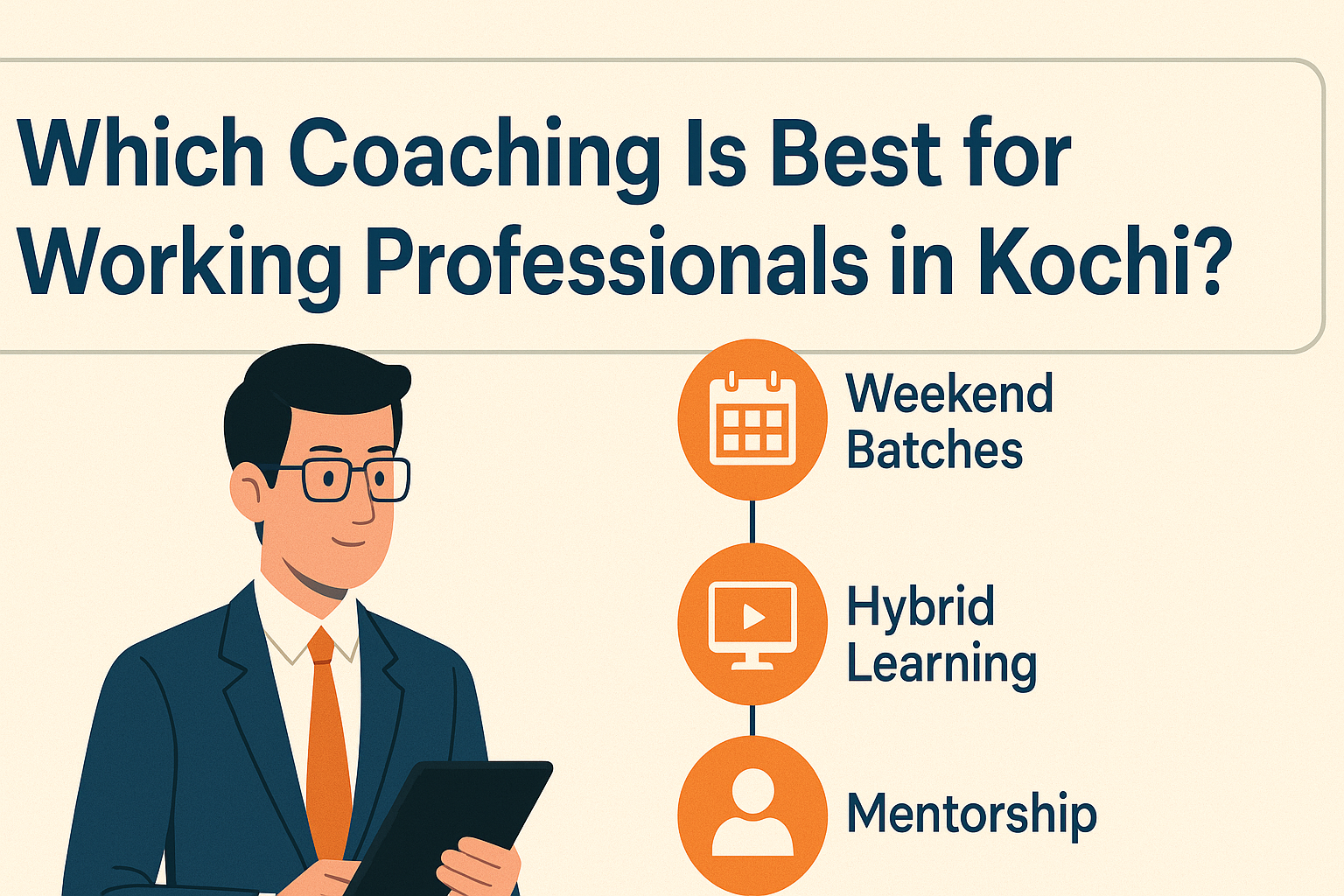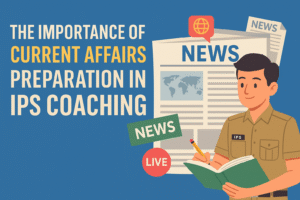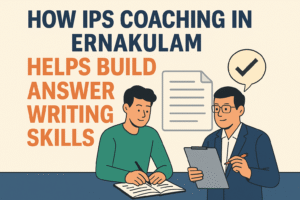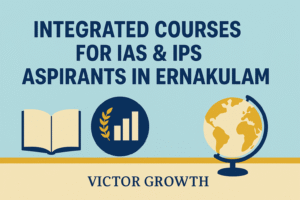Working professionals in Kochi juggle long commutes, shifting shifts, and family time—so the best coaching is the one that fits your life without compromising on results. This guide explains exactly what to look for, how to compare options, and where a working professional will genuinely thrive for UPSC CSE / KAS / IFoS / Defence (NDA/CDS/AFCAT) and allied exams.
What “Best” Means for a Working Professional
1) Timetable Fit
Weekend core classes (Sat–Sun 9:30 am–1 pm or 2–6 pm)
Early morning (6–8 am) or late evening (7–9:30 pm) micro-sessions on weekdays
On-demand recordings + catch-up capsules if you miss a class
2) Hybrid Learning That Actually Works
Live in-class + synchronous online + high-quality recordings within 12–24 hours
Chapter bookmarks, searchable transcripts, and downloadable notes
3) Mentorship & Accountability
Monthly 1:1 mentor calls to recalibrate schedule
Study sprints (7–14 day targets) + weekly progress trackers
Answer writing with individualized rubrics
4) Test Series That Respects Your Work Hours
Flexible test windows (Fri night–Sun night)
Proctored online mode with instant analytics
Granular post-test clinics for error patterns
5) Results Infrastructure
PYQ-first pedagogy (10+ years UPSC/KAS)
Micro-revision loops (48-hour, 7-day, 21-day)
Subject integration: Current Affairs woven into GS
6) Fees & Value
Modular, phase-wise fees (Foundation → Advanced → Test Series)
Clear inclusions (hours, tests, mentorship)
Scholarships/EMI where available
How to Compare Kochi Coaching Options (Working-Professional Lens)
| Criterion | What to Demand | Red Flags |
|---|---|---|
| Batch Timings | Weekend + early/late weekday slots | Only daytime weekday batches |
| Recordings | HD, indexed, uploaded quickly | Audio-only or delayed uploads |
| Mentoring | Scheduled 1:1, written feedback | Generic group advice only |
| Tests | Flexible windows + analytics | Fixed-time only; no analysis |
| Syllabus Plan | Monthly & weekly targets | Vague “we’ll cover everything” |
| Answer Writing | Evaluated with rubrics | Only self-practice, no review |
| Materials | Concise notes + PYQ focus | Bloated PDFs without curation |
| Fees | Transparent, modular, EMI | Lump-sum only; hidden add-ons |
Study Blueprint for Busy Professionals (12-Month Sample)
Weekdays (Mon–Fri)
Morning (45–60 min): Core theory bites (recorded lectures at 1.25x), note consolidation
Commute pockets (15–20 min): Current affairs audio + flashcards
Night (45–60 min): 10 MCQs + 1 short note or a 10-marker brainstorm
Weekends
Sat (3–4 hrs): Live class + targeted notes + 1 hr revision
Sun (3–4 hrs): Sectional test + review clinic + error log update
Monthly
2 answer-writing evaluations with mentor feedback
1 full-length sectional test + analytics call
Syllabus checkpoint (carry-forward plan for spillovers)
Kochi-Specific Practicalities
Kadavanthara / Kaloor / Edappally hubs ease access from most corridors; consider metro proximity to save time.
Prefer institutes with hybrid-first delivery so you can switch between online and in-person seamlessly during peak work weeks or travel.
Why Working Professionals Choose Victor Growth (Kochi)
Schedules built for jobs: Weekend intensives, early AM / late PM micro-sessions
Hybrid delivery: Offline + live online + fast recordings with topic indexing
Mentored prep: 1:1 monthly check-ins, answer-writing rubrics, and detailed feedback
Data-driven tests: Flexible windows, analytics, and post-test doubt clinics
Focused materials: PYQ-driven notes, editorial-style current affairs, and micro-revision loops
Affordable Fee with modular phases and clear inclusions
Tracks covered: UPSC CSE (Prelims+Mains), KAS, IFoS basics, Defence written & SSB essentials
FAQs
Q1. Which coaching is best for working professionals in Kochi?
The best fit offers weekend + early/late weekday slots, hybrid classes with recordings, structured mentoring, and flexible test windows. Institutes like Victor Growth are tailored for working aspirants with Affordable Fee and modular phases.
Q2. I work in shifts. Can I still prepare effectively?
Yes—use recordings + micro-lectures on workdays, consolidate on weekends, and keep test windows flexible. Maintain an error log and schedule a monthly mentor review.
Q3. Is online enough, or should I go hybrid?
For most professionals, hybrid wins: attend in person when free, switch online during crunch weeks, and rely on recordings to fill gaps.
Q4. How many hours per day should I study?
Aim for 1.5–2 hrs on weekdays (split into two short blocks) and 6–8 hrs across the weekend. Focus on MCQs + answer-writing and periodic full-length tests.
Q5. How soon should I start answer writing?
After 4–6 weeks of basic coverage, begin 10-markers twice a week. Get evaluations with rubrics early to build structure.
Q6. What fee structure suits working professionals?
Choose modular/phase-wise payments with transparent inclusions (hours, tests, mentoring). Avoid one-time lumpsums with vague promises.
Q7. Can I clear UPSC/KAS while working full-time?
Yes—many do. The keys are time-blocking, mentor-led correction, smart revision cycles, and consistent testing.
Final Word
Don’t chase the loudest marketing. As a working professional in Kochi, pick the institute that respects your time and personalizes feedback—that’s what converts effort into rank. If you want, I’ll tailor the 12-month plan and weekly timetable exactly to your job hours and target exam.







